Dear Reader, envision that Village which grew upon the southern strand of that isle of Manhattoes: a Lenape settlement purchased for 60 guilders and named for Amsterdam, later to be acquired by gunships of King James, and her wooden-legged governor relieved of duty; a frontier town in that Era of Enlightenment, though a hearty fragment of some 7,000 souls clinging to that huge, dark, and mysterious continent; and which, upon the fresh-green breast of the New World a mighty metropolis to rival Babel or Byzantium would grow. Here, in the dusk-laden twilight of empire, let us contemplate our origins as we live out our endings, and ask which original sins have cursed our posterity? As this land was a fantasy of 18th-century people, dreaming in the baroque vernacular of that sinful and glorious age, an era which saw the twinned gifts of mercantile prosperity and the evils of human bondage, it befits us to speak in the serpentine tongue of the era, mimicking the meandering sentences and the commas and semicolons heaped together as high as oranges or coffee beans from the Indies sold in a Greenwich Village shop in 1746: something that the essayist Francis Spufford accomplishes in his brilliant account Golden Hill: A Novel of Old New York (which, if not available yet in quarto form, is now for purchase in the equally convenient “paper back”).
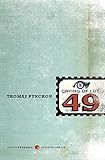

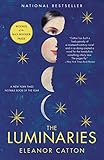 Reminiscent of novels like Thomas Pynchon’s The Crying of Lot 49 (with its fake Jacobean play), Charles Johnson’s postmodern picaresque Middle Passage, or Eleanor Catton’s Victorian Gothicism in The Luminaries, Spufford returns us to when “New-York” (as it was then spelled) was a middling colony on the largest harbor in the world. Still smaller than Philadelphia and not yet as culturally significant as Boston, New-York was poised by virtue of geography and diversity to ultimately become America’s greatest city. Spufford’s main character describes his native London as “a world of worlds. Many spheres all mashed together, to baffle the astronomers. A fresh plant to discover, at every corner. Smelly and dirty and dangerous and prodigious,” an apt description of New-York’s future.
Reminiscent of novels like Thomas Pynchon’s The Crying of Lot 49 (with its fake Jacobean play), Charles Johnson’s postmodern picaresque Middle Passage, or Eleanor Catton’s Victorian Gothicism in The Luminaries, Spufford returns us to when “New-York” (as it was then spelled) was a middling colony on the largest harbor in the world. Still smaller than Philadelphia and not yet as culturally significant as Boston, New-York was poised by virtue of geography and diversity to ultimately become America’s greatest city. Spufford’s main character describes his native London as “a world of worlds. Many spheres all mashed together, to baffle the astronomers. A fresh plant to discover, at every corner. Smelly and dirty and dangerous and prodigious,” an apt description of New-York’s future.
As of 1746, the city was only a hundredth the size of London, and “Broad Way” was a “species of cobbled avenue, only middling broad,” but where even her modest stature indicated the Great White Way which was to come, populated as it was with “Wagon-drivers, hawkers with handcarts and quick-paced pedestrians…passing in both directions.” Burnt and rebuilt, paved and repaved, built tall and torn down, there is (unlike in Philly or Boston) scarcely any evidence left of colonial origins. Golden Hill conjures that world for us, the literary equivalent of visiting Independence or Faneuil Hall. At a reeking Hudson River dock we skid over “fish-guts and turnip leaves and cats’ entrails, and the other effluvium of the port,” and in a counting office we smell “ink, smoke, charcoal and the sweat of men” as in domestic rooms we inhale the odor of “waxed wood, food, rosewater and tea-leaves.” Spufford allows us to glimpse New-York as it was and proffers explanation of how our New York came to be. What results is a novel about novels themselves and about America itself as the greatest example of that form.

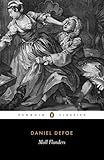
 Golden Hill follows the perambulations of Richard Smith, a mysterious Englishman arriving with a bill of order for £1,000 from a venerable London firm, to be fulfilled by a New-York creditor. Smith’s arrival throws the town into consternation, for what the stranger hopes to accomplish with such a large sum remains inscrutable. Denizens of the town include Greg Lovell and his daughters, namely the acerbic ingenue Tabitha, the delightfully named assistant to the governor, Septimus Oakeshott, and a whole multitude of Hogarthian characters.
Golden Hill follows the perambulations of Richard Smith, a mysterious Englishman arriving with a bill of order for £1,000 from a venerable London firm, to be fulfilled by a New-York creditor. Smith’s arrival throws the town into consternation, for what the stranger hopes to accomplish with such a large sum remains inscrutable. Denizens of the town include Greg Lovell and his daughters, namely the acerbic ingenue Tabitha, the delightfully named assistant to the governor, Septimus Oakeshott, and a whole multitude of Hogarthian characters. 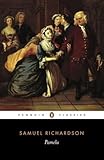

 Spufford has digested the canon of 18th-century novels, when the form itself was defined, and in the winding, playful, self-aware sentences of Golden Hill one reads an aperitif of Sarah Fielding’s The Governess, an appetizer of Daniel Defoe’s Moll Flanders, a soup of Henry Fielding’s Tom Jones, a supper of Samuel Richardson’s Pamela or Clarissa, a dram of John Cleland’s Fanny Hill, and of course a rich desert of Laurence Sterne’s Tristram Shandy.
Spufford has digested the canon of 18th-century novels, when the form itself was defined, and in the winding, playful, self-aware sentences of Golden Hill one reads an aperitif of Sarah Fielding’s The Governess, an appetizer of Daniel Defoe’s Moll Flanders, a soup of Henry Fielding’s Tom Jones, a supper of Samuel Richardson’s Pamela or Clarissa, a dram of John Cleland’s Fanny Hill, and of course a rich desert of Laurence Sterne’s Tristram Shandy. 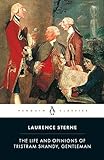
 Spufford’s bildungsroman is a celebration of those door-stoppers, and he liberally borrows their conventions, imitating their social sweep and tendency to knowingly meditate on fiction’s paradoxes. Conventions are explored: not just the marriage plot subversions of Richard and Tabitha’s courtship, but depictions of an elegant dance, the performance of Joseph Addison’s omnipresent pre-Revolutionary play Cato, a smoky game of piquet, a snowy duel, an absurd trial, and a squalid prison sentence (as well as a sex scene out of Cleland), all constructed around the rake’s progress (and regress).
Spufford’s bildungsroman is a celebration of those door-stoppers, and he liberally borrows their conventions, imitating their social sweep and tendency to knowingly meditate on fiction’s paradoxes. Conventions are explored: not just the marriage plot subversions of Richard and Tabitha’s courtship, but depictions of an elegant dance, the performance of Joseph Addison’s omnipresent pre-Revolutionary play Cato, a smoky game of piquet, a snowy duel, an absurd trial, and a squalid prison sentence (as well as a sex scene out of Cleland), all constructed around the rake’s progress (and regress).
Tabitha contends that novels are “Slush for small minds, sir. Pabulum for the easily pleased,” but Golden Hill proves that in their finely attuned imitation of consciousness and construction of worlds both interior and exterior, novels remain the greatest mechanisms for empathy which language has ever produced. True to the form’s name itself, novels are about self-invention, and as such Richard Smith is a representative example of the bootstrapping characters of his century, the protagonist (and his creator) intuiting that there is significance in the first page’s freshness, where “There’s the lovely power of being a stranger.” A particularly American quality of the very form of the novel itself.
 Smith explains that “I may as well have been born again when I stepped ashore. You’re a new man before you, new-made. I’ve no history here, and no character: and what I am is all in what I will be.” The religious connotation is not accidental, for in that most Protestant of literary forms, the novel always accounts for a conversion of sorts, for what else is self-invention? In the 18th-century Letters from an American Farmer, the French settler J. Hector St. John de Crèvecœur posited that the American was a “new man,” and as the novel constructs identities, so, too, could the tabula rasa of the western continents, for Spufford’s protagonist was a “young man with money in his pocket, new-fallen to land in a strange city on the world’s farther face, new-come or (As he himself had declared new-born, in the metropolis of Thule).”
Smith explains that “I may as well have been born again when I stepped ashore. You’re a new man before you, new-made. I’ve no history here, and no character: and what I am is all in what I will be.” The religious connotation is not accidental, for in that most Protestant of literary forms, the novel always accounts for a conversion of sorts, for what else is self-invention? In the 18th-century Letters from an American Farmer, the French settler J. Hector St. John de Crèvecœur posited that the American was a “new man,” and as the novel constructs identities, so, too, could the tabula rasa of the western continents, for Spufford’s protagonist was a “young man with money in his pocket, new-fallen to land in a strange city on the world’s farther face, new-come or (As he himself had declared new-born, in the metropolis of Thule).”
 Because of both chronology and spirit, America is the most novelistic of countries. Novels are engines of contradiction, and nothing is more contradictory than America as Empire of Liberty. Anyone walking a Manhattan street adorned in both unspeakable luxury and poverty can sense those contradictions. America is just slightly younger than the novel, for despite notable precedents (such as Miguel de Cervantes’s Don Quixote), the form was an 18th-century phenomenon; as a result, we’ve never been as attracted to the epic poem, preferring to find our fullest encapsulation in the ever-elusive “Great American Novel.” Long-form, fictional prose—with its negative capability, its contradictions, and its multivocal nature—was particularly attuned to that strange combination of mercantilism, crackpot religiosity, and self-invention which has always marked the nation.
Because of both chronology and spirit, America is the most novelistic of countries. Novels are engines of contradiction, and nothing is more contradictory than America as Empire of Liberty. Anyone walking a Manhattan street adorned in both unspeakable luxury and poverty can sense those contradictions. America is just slightly younger than the novel, for despite notable precedents (such as Miguel de Cervantes’s Don Quixote), the form was an 18th-century phenomenon; as a result, we’ve never been as attracted to the epic poem, preferring to find our fullest encapsulation in the ever-elusive “Great American Novel.” Long-form, fictional prose—with its negative capability, its contradictions, and its multivocal nature—was particularly attuned to that strange combination of mercantilism, crackpot religiosity, and self-invention which has always marked the nation.

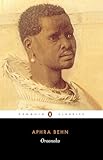
 If Golden Hill were but a playful homage, it would be worthwhile enough, but the brilliance of Spufford’s narrative is that he makes explicit what was so often implicit in those books. Literary critic Edward Said brilliantly read Jane Austen’s Mansfield Park for sublimated evidence of English colonial injustice, but in our era, Spufford is freer than Austen to diagnose the inequities, cruelties, and terrors which defined that era and which dictate our present lives as well. From Aphra Behn’s Oroonoko through Herman Melville’s Benito Cereno and into the modernist masterpieces of Ralph Ellison, James Baldwin, and Toni Morrison, race has always been integral to the novelistic imagination, and America’s original sin has oft been identified as corollary to myths of self-invention, indeed that which hypocritically made such self-invention for a select few possible. From his Broadway hotel, Smith hears someone “sweeping the last leaves, and singing slow in an African tongues as if their heart had long ago broken, and they were now rattling the pieces together desultorily in a bag.”
If Golden Hill were but a playful homage, it would be worthwhile enough, but the brilliance of Spufford’s narrative is that he makes explicit what was so often implicit in those books. Literary critic Edward Said brilliantly read Jane Austen’s Mansfield Park for sublimated evidence of English colonial injustice, but in our era, Spufford is freer than Austen to diagnose the inequities, cruelties, and terrors which defined that era and which dictate our present lives as well. From Aphra Behn’s Oroonoko through Herman Melville’s Benito Cereno and into the modernist masterpieces of Ralph Ellison, James Baldwin, and Toni Morrison, race has always been integral to the novelistic imagination, and America’s original sin has oft been identified as corollary to myths of self-invention, indeed that which hypocritically made such self-invention for a select few possible. From his Broadway hotel, Smith hears someone “sweeping the last leaves, and singing slow in an African tongues as if their heart had long ago broken, and they were now rattling the pieces together desultorily in a bag.”
When Spufford describes New-York in the midst of a nor’easter as being “perched on the white edge of a white shore: the white tip of a continent layered in, choked with, smoothed over by, a vast and complete whiteness,” he provides an apt metaphor for the fantasies of racial purity which have motivated those in power, and of the ways in which white supremacy smothers the land. Far from being only a Southern “peculiar institution,” the bondage of human beings is what allowed Northern cities like New-York to grow fat, where for creditors like Mr. Lovell it was “every stage, every transaction, yielding sweet, secure profit, and those profits in turn buying a flood of Turkey-carpets, cabinets, tea-pots, Brummagem-ware toys and buttons, et cetera, et cetera.” That dizzying array of comforts and luxuries purchased with “Slaveries, Plantations, Chains, Whips, Floggings, Burnings…a whole World of Terrors.” Not content to let the central horror of slavery elude to the background, Golden Hill demonstrates how the wealth of colonial New-York was based on an economic logic which admitted that though the “slaves died in prodigious number…there were always number still more prodigious from Africa to replace them in the great machine, and so the owners kept on buying, and eagerly.”
Golden Hill is as much about today as then, for despite its playfulness, its readability, its love of what makes old novels beautiful, it’s fundamentally an account of American darkness—from the Guy Fawkes Day bonfire, which might as well be the Charlottesville rallies of last summer, to the capturing of our current fevered paranoia by invoking the so-called “Negro Plot,” when some five years before the setting of Golden Hill, over a hundred enslaved Africans were hung, immolated, or broken on the wheel in southern Manhattan, having been implicated in a nonexistent conspiracy to burn down the city. Leave it to an Englishman to write our moment’s Great American Novel, who with sober eye provides a diagnosis of American ills and, true to the didactic purpose of authors like Richardson and Defoe, provides a moralizing palliative to the body politic.
Spufford’s novel concerns invention and passing, wealth and poverty, appearances and illusions, the building of fortunes and the pining for that which is unavailable—not least of which for what some liar once called the “American Dream.” In one of those moments of unreliability which mark the novelist’s art, Spufford writes that the “operations of grace are beyond the recording powers of the novelist. Mrs. Fielding cannot describe them; nor Mr. Fielding, nor Mrs. Lennox, nor Mr. Richardson, nor Mr. Smollett, nor even Mr. Sterne, who can stretch his story further than most.” But we’re not to take such an argument at face value, for despite Tabitha’s protestations, novels have always been conduits of moral feeling. Golden Hill proves it. The only different between Spufford’s diagnosis and those which focus only on the degradations of the individual is that the rake whose fallenness is condemned in Golden Hill is America itself.









